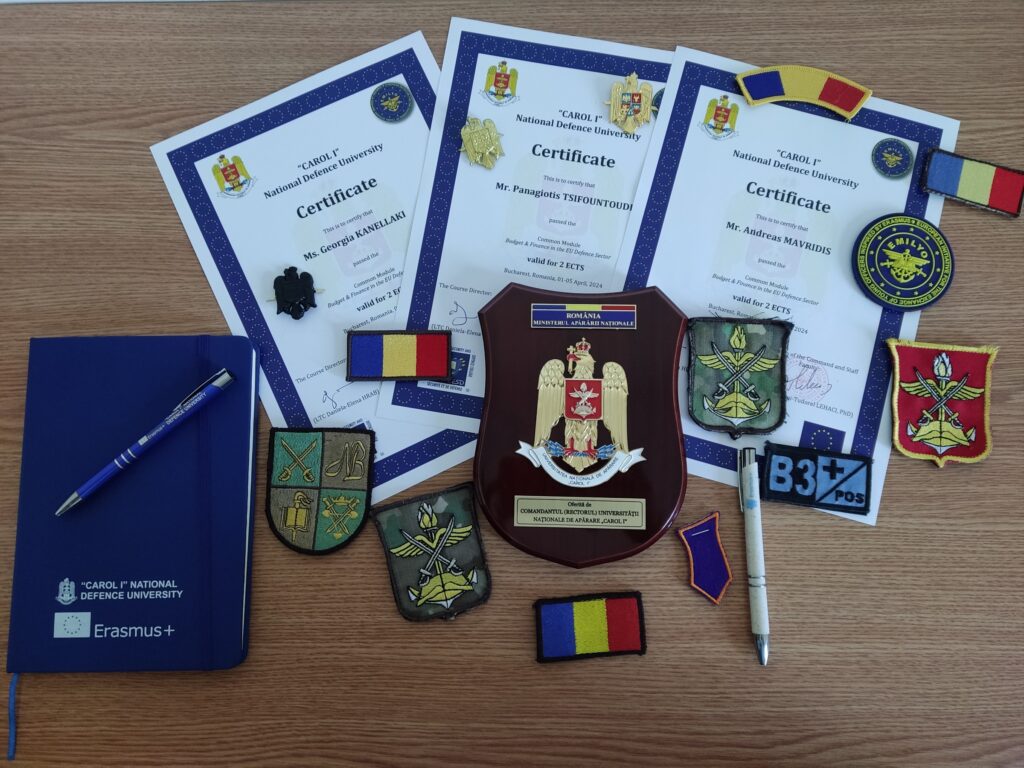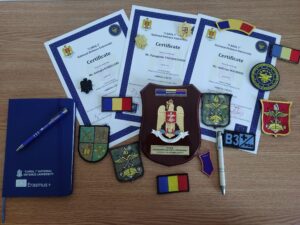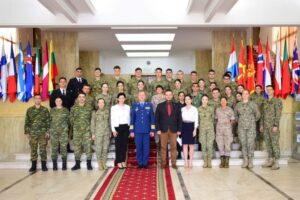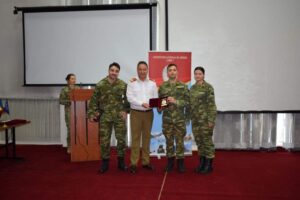From April the 1st to April the 5th 2024 the “Carol I” National Defence University of Bucharest in Romania hosted the Common Module “Budget & Finance in the EU Defence Sector”, under the auspices of the European Security and Defence College (ESDC), in which the following cadets of our Academy took part:
- 4th year Cadet (LAW) Kanellaki Georgia
- 4th year Cadet (ECON) Mavridis Andreas
- 4th year Cadet (ECON) Tsifountoudis Panagiotis
The common module was also attended by cadets from other Academies of the European Union. Specifically, thirty-four cadets from five different countries (Greece, Italy, Portugal, Romania, Spain) participated in the CM.
The topics of this training activity covered the procurement in the Defence sector and the procedures followed by the European Union regarding the financial coverage of its defense activities.
Specifically, during the first two days, the framework of the economic cooperation of the EU member states and the need to strengthen it were analyzed extensively. Furthermore, the professors presented the European Peace Facility and its Commission’s decision-making processes. A noteworthy event on this subject was the simulation of the EPF Committee with members-representatives of the participants of the Common Module, which took place under the supervision and guidance of Commander (OF-4) Hellenic Navy Panagiotis Blanos. Its purpose was to discuss requests and make decisions on current missions of concern to the EU.
The next two days, issues related to the way negotiations are conducted and the management of conflicts that may arise from conflicting interests were highlighted. In this context, the necessity of integrity and transparency in the procurement process was emphasized in order to achieve the reduction of corruption. At this point it should be mentioned that on a daily basis the students engaged in the collaborative solution of case studies, simulating normal conditions.
Finally, on the last day as part of a closing ceremony, the students were given the diplomas of successful participation as well as souvenirs in order to remember this unique experience.




